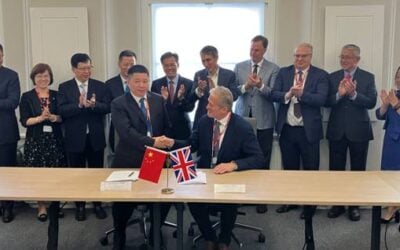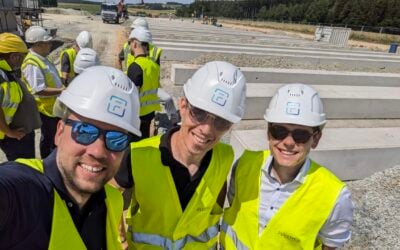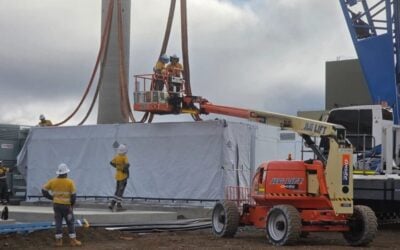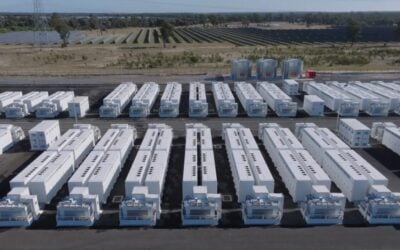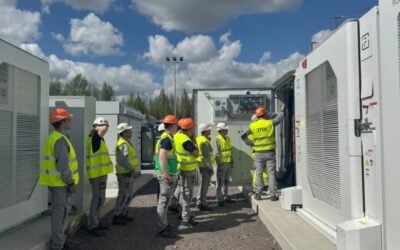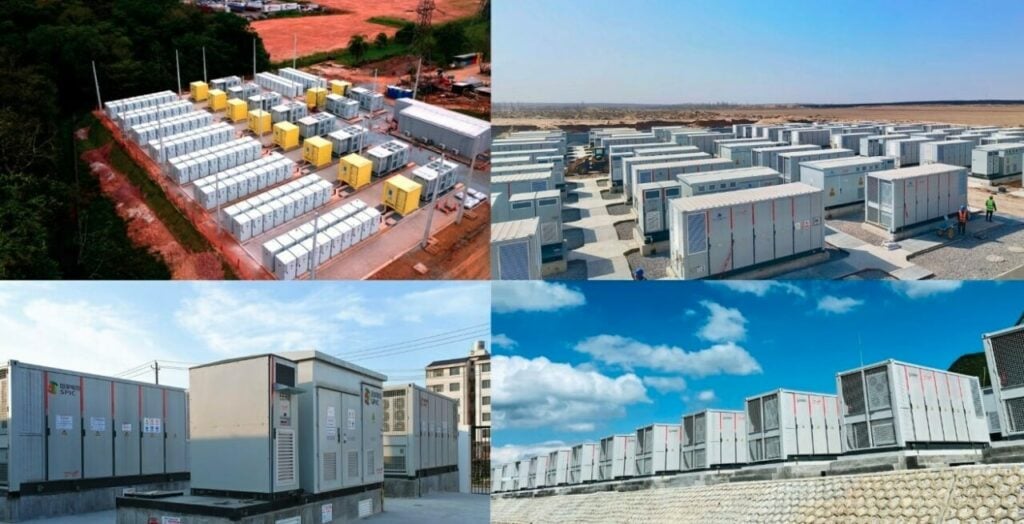
BloombergNEF (BNEF) has launched its Energy Storage Tier 1 list of providers, noting growth in new players from the China market.
The Tier 1 ranking of battery energy storage system (BESS) providers was released earlier his month. While its names have not been disclosed publicly, Energy-Storage.news can reveal that Fluence, Tesla, Powin, Wärtsilä and Hithium are there, while other major players like Sungrow, Nidec, BYD, Samsung SDI and LG Energy Solution are likely to be too.
Enjoy 12 months of exclusive analysis
- Regular insight and analysis of the industry’s biggest developments
- In-depth interviews with the industry’s leading figures
- Annual digital subscription to the PV Tech Power journal
- Discounts on Solar Media’s portfolio of events, in-person and virtual
One notable new entrant is China-based Kehua (Xiamen Kehua Digital Energy Tech), primarily a power conversion specialist but increasingly in the BESS market with its most notable project outside China being one in Brazil, the country’s largest. It is the only company to officially announce its inclusion.
Its inclusion is emblematic of trend of China-based companies increasingly gaining global market share in the BESS space which was also recently noted by S&P Global and Wood Mackenzie, and on which Yayoi Sekine, head of energy storage for BNEF, commented to Energy-Storage.news.
“While there are quite a few notable incumbent suppliers in the energy storage space (e.g., Fluence, Tesla, Wärtsilä, BYD, Samsung SDI, LG Energy Solution within others), we’ve seen a significant uptick of lesser known suppliers, especially from China,” Sekine said.
“The Chinese domestic market has picked up and battery manufacturing competition is leading a lot of those companies to integrate systems to provide to downstream customers. Many integrators are going upstream and manufacturing their own batteries.”
Another notable inclusion is vanadium redox flow battery (VRFB) provider Invinity Energy Systems, most likely the only non-lithium manufacturer on the list.
Tier lists for clean energy technology providers exist primarily for purposes of bankability of projects. Benchmark Mineral Intelligence has the most notable Tier (1-3) list of lithium-ion battery cell manufacturers, while BNEF already has Tier 1 list for PV suppliers and Tier lists also exist for inverter brands.
Sekine also commented on the benefits of being fully-integrated with battery cell production versus being a pure-play system integrator, since the list includes both types of companies. Hithium is vertically integrated while Powin is a pure play system integrator, for example, and Hithium is selling battery cells to Powin, the pair announced this week.
“The advantage of being fully integrated is that there can be cost savings with the logistics and product development in integrating cells to pack and pack to systems physically close to each other (assuming you are able to manufacture batteries at scale at a competitive cost),” Sekine said.
“Being a BESS only system integrator is an advantage when there is oversupply in the market, allowing those companies to purchase lower-cost cells when they are abundant likely lower than if they were to manufacture it themselves (current situation now). Investing in cell manufacturing is a high-cost and highly skilled endeavor, not all companies are willing to go that far upstream.”
The current market appears to be in a state of oversupply, with the price of both BESS and battery cells coming down substantially after the spikes of 2022. In research notes by S&P Global and Wood Mackenzie mentioned earlier this was attributed primarily to growth in BESS manufacturing from China stemming from an increasingly competitive domestic market there.
Methodology
The analysis is based on BNEF’s 9,000-strong database of projects.
While the list is not public, BNEF has released its methodology and criteria for drawing up the Tier 1 list.
To be included, companies:
- must have supplied, or be firmly contracted to supply, products to six different eligible projects in the last two years and those projects:
- must be larger than 1MW or 1MWh (whichever is higher)
- must be owned by companies that are not affiliated with the energy storage provider (in other words, the purchaser of the energy storage system must be a third party);
- cannot be built to meet renewable energy project integration mandates (such as those in place in many Chinese provinces)
- cannot have filed for bankruptcy or insolvency protection or is in default of major financial obligations
- must own a manufacturing plant
Energy-Storage.news has asked the company about additional criteria and will update this article in due course.
Energy-Storage.news’ publisher Solar Media will host the 9th annual Energy Storage Summit EU in London, 20-21 February 2024. This year it is moving to a larger venue, bringing together Europe’s leading investors, policymakers, developers, utilities, energy buyers and service providers all in one place. Visit the official site for more info.
Energy-Storage.news’ publisher Solar Media will host the 5th Energy Storage Summit USA, 19-20 March 2024 in Austin, Texas. Featuring a packed programme of panels, presentations and fireside chats from industry leaders focusing on accelerating the market for energy storage across the country. For more information, go to the website.

